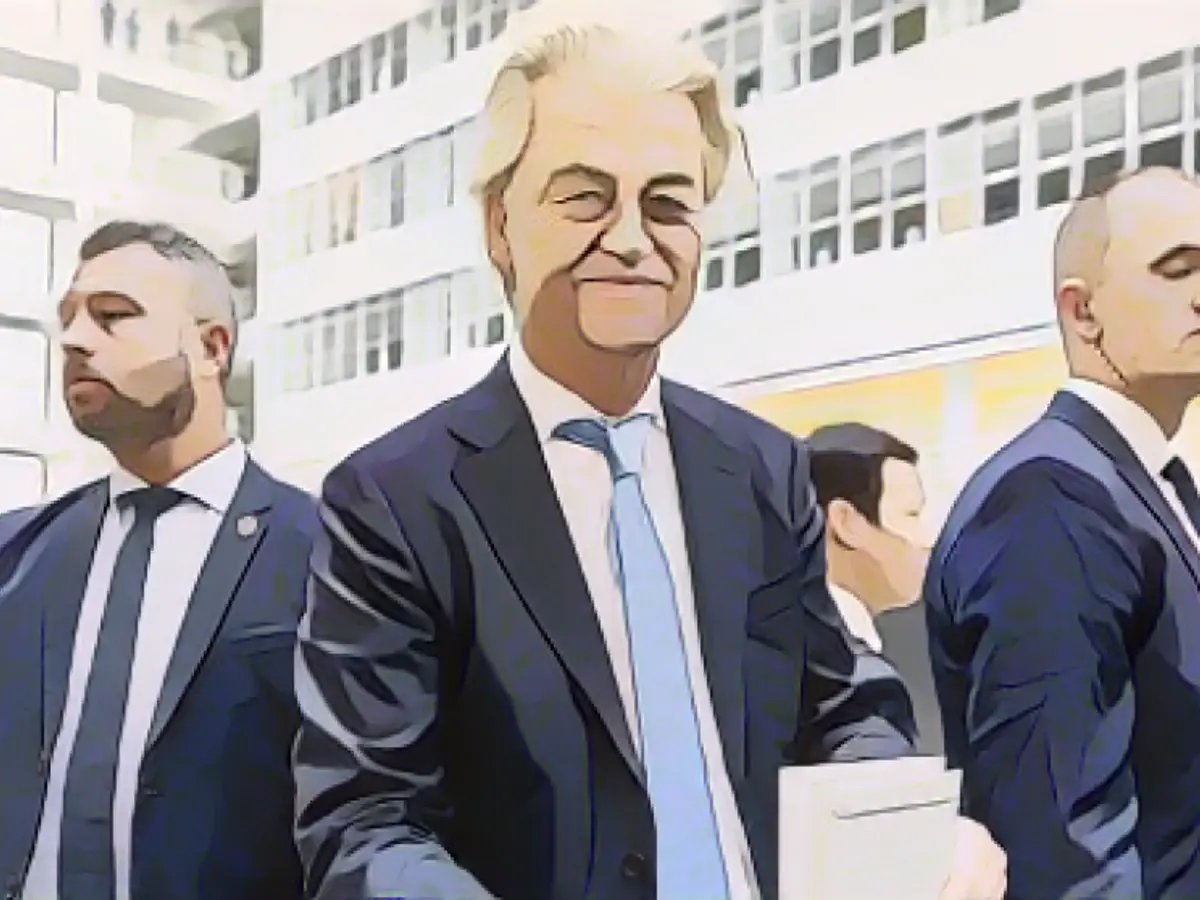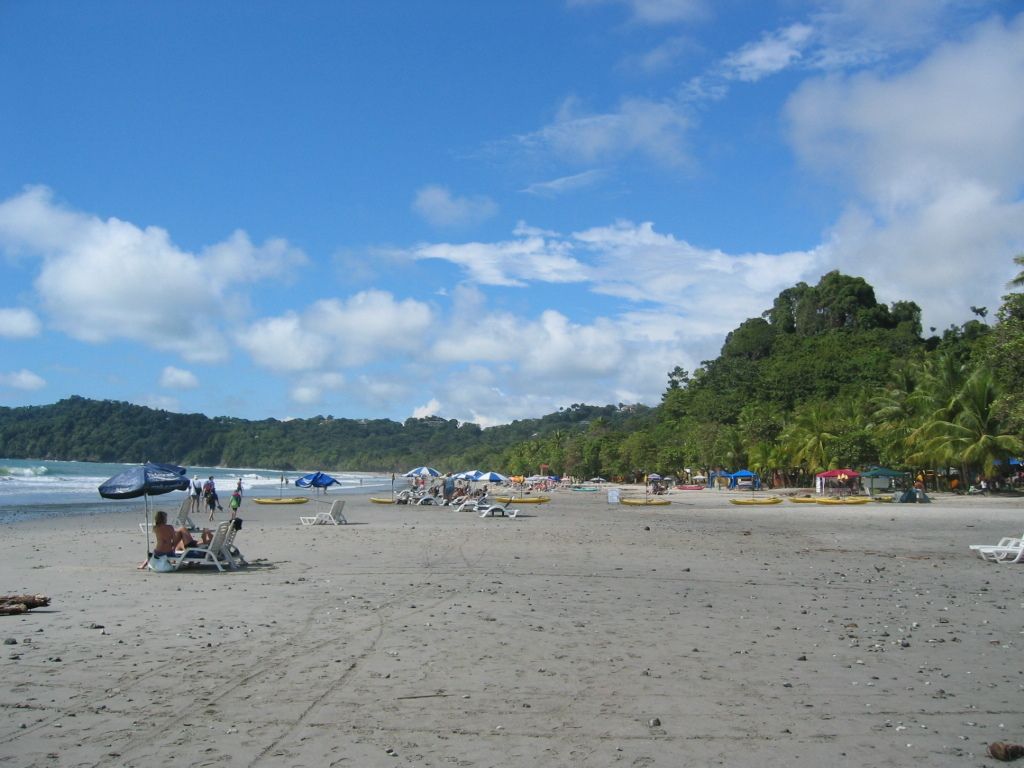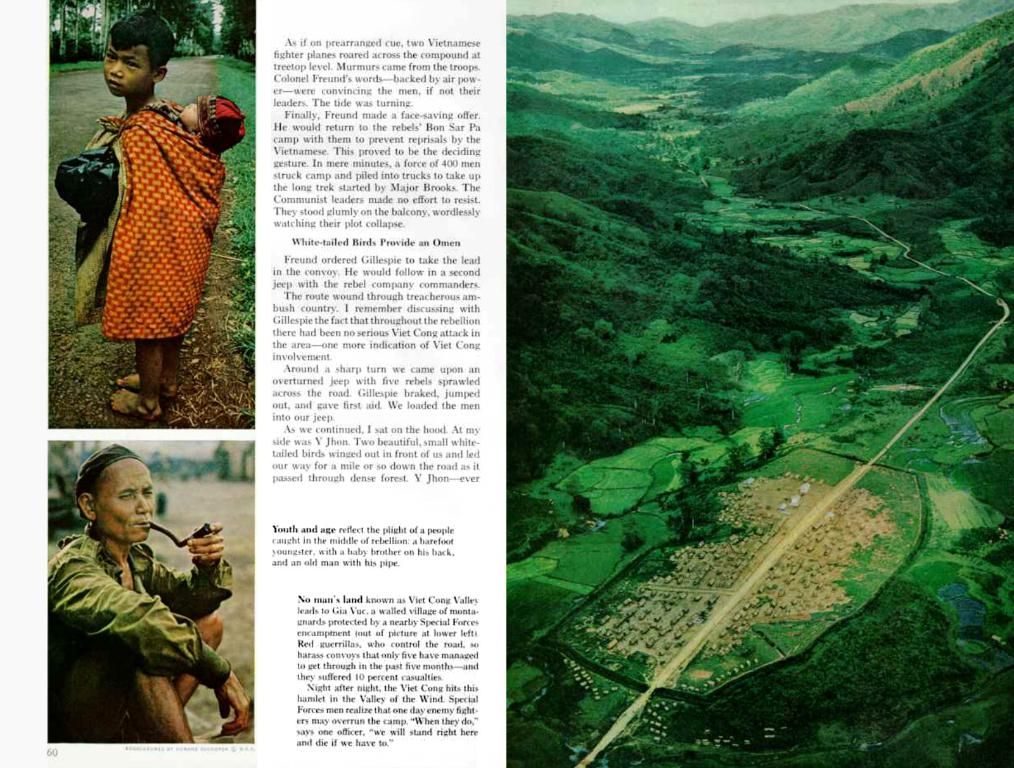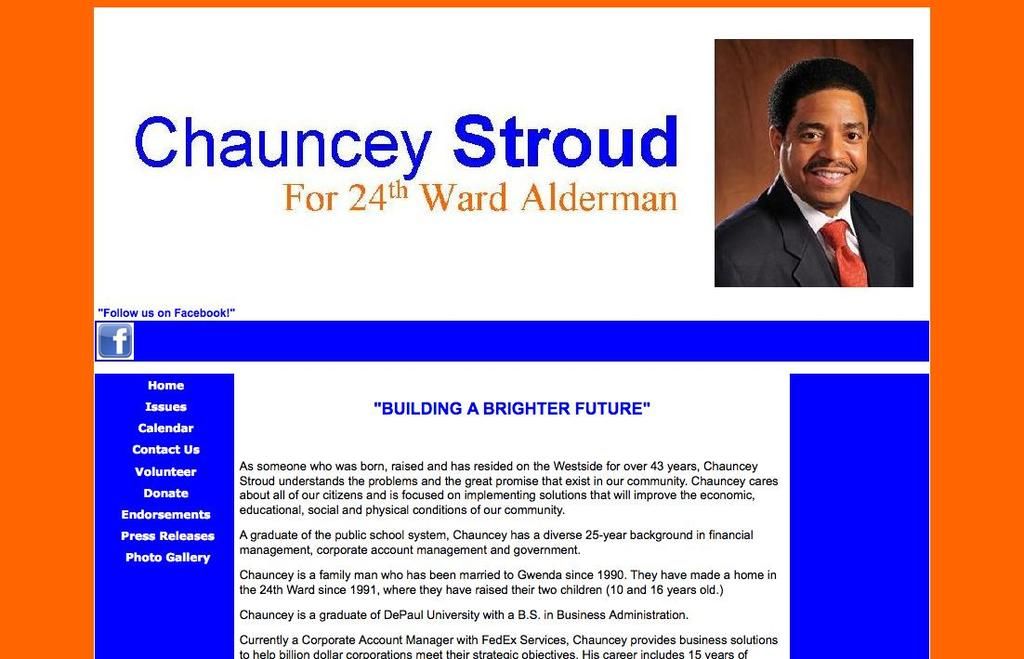Holland's Politica Shake-up!
Dutch parliamentary elections shake things up
The PVV party, fronted by right-wing populist Geert Wilders (60), emerged as the leading force within the Dutch parliament, bagging a staggering 35 seats.
As the dust settles following the recent polls, according to Ipsos Institute's forecast, the center-left alliance Groenlinks/PvdA clinched 26 seats and the conservative VVD party, led by Prime Minister Mark Rutte (56) and his lead candidate Dilan Yesilgöz (46), scored 23 seats.
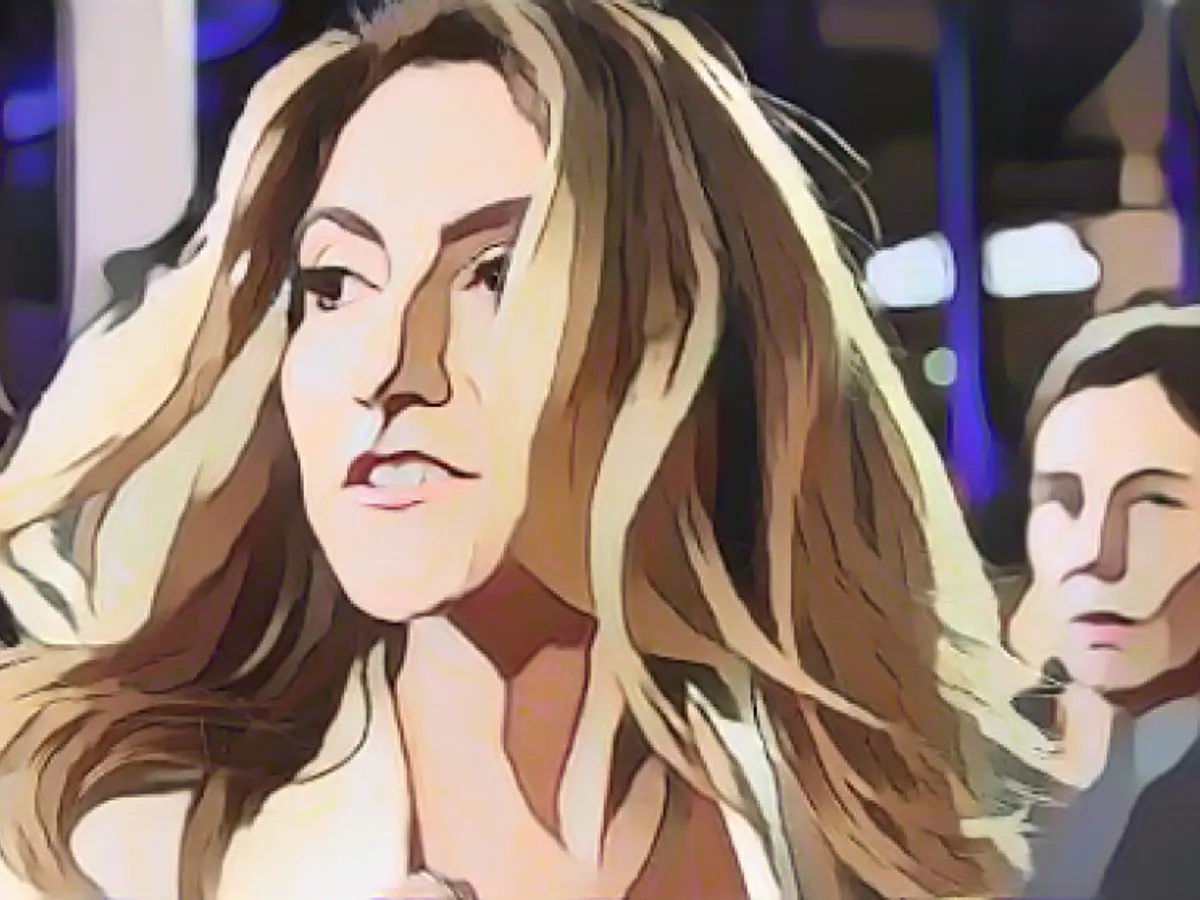
The historic election marked a significant shift in Dutch politics with a tight race between the right-wing populists, VVD, and the red-green alliance, long anticipated before the polls. Around 13.3 million eligible voters participated.
Wilders' PVV surged in popularity in the latter stages of the campaign. Initially, VVD's lead candidate, Dilan Yesilgöz, had suggested the possibility of cooperating with Wilders as a coalition partner. In contrast, Prime Minister Mark Rutte, long-standing leader of the VVD, had maintained vehemently against any such partnership.
After securing a likely victory, Wilders reiterated his intent to assume control of the government: "PVV will collaborate with other parties, requiring all parties to leap over their own shadows" he declared. He remained resolute, reiterating, "We intend to govern. And with 35 seats, we will govern."
However, the future of government formation remains uncertain.
Wilders advocates a hardline anti-Islam approach, aiming to close mosques and ban the Koran. During the election campaign, he toned down his anti-Islam stance, with a focus on sealing the borders for asylum seekers.
The necessary early elections arose due to a rift within Rutte's center-right coalition over migration policy. Pragmatic Rutte, the longest serving Prime Minister in Dutch history, announced his exit from national politics and intends to become NATO Secretary-General, before a new government takes office.
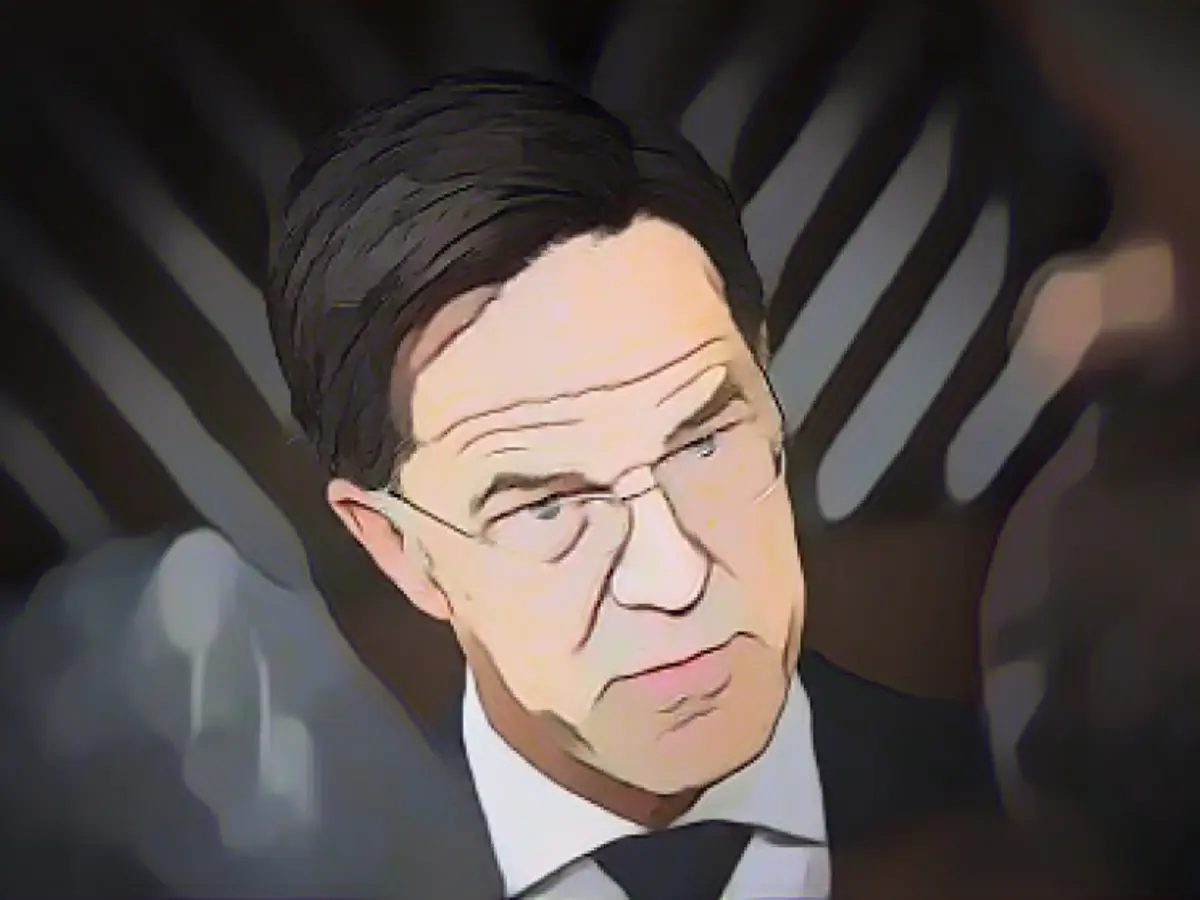
https://www.bild.de/
- In a twist of events, Geert Wilders, the nominated leader of the PVV party with a tough stance on immigration and Islam, proclaimed his intentions to establish a government.
- Meanwhile, various coalitions have emerged under consideration, but no formal agreements have been finalized, with the PVV, VVD, New Social Contract (NSC), and Farmer-Citizen Movement (BBB) being the main players involved. Each of these parties holds distinct stances on immigration and Islam.
The PVV, under Geert Wilders:
- Immigration: PVV is widely known for its hardline stance against immigration, advocating for stricter control measures and challenging existing immigration policies.
- Islam: The party is associated with anti-Islam sentiments, which Geert Wilders has expressed openly and vigorously in the face of Islamic practices and the presence of Muslims in Dutch society.
The VVD (People's Party for Freedom and Democracy):
- Immigration: The VVD has adopted a more measured approach to immigration compared to the PVV. While they acknowledge the need to address certain immigration concerns, they have demonstrated a more moderate stance, advocating for reasoned asylum policies.
- Islam: Unlike the PVV, the VVD has not engaged in outspoken anti-Islamic rhetoric but have engaged in conversations about tightening asylum laws and reducing the number of asylum-seekers.
New Social Contract (NSC):
- Immigration: The NSC has been involved in discussions aimed at addressing the issue of asylum seekers and the need for stricter asylum policies. They aim to ensure practical and effective solutions while taking care not to be heavy-handed.
- Islam: The NSC does not hold a firm stance on Islam but instead focuses on practical resolutions to immigration and asylum challenges, rather than engaging in ideological positions.
Boerburgerbeweging (Farmer-Citizens Movement), or BBB:
- Immigration: The BBB aligns itself with PVV on the issue of asylum seekers and stricter policies, but maintains a more nuanced approach to immigration issues.
- Islam: Like the PVV, the BBB does not have a firm stance on Islam and instead focuses on rural issues, avoiding overt anti-Islamic rhetoric.
These coalitions are still in the process of forming, and their specific positions and any agreements regarding immigration and Islam policies remain subject to change. Geert Wilders' unyielding stance on these issues has reverberated throughout the coalition discussions, further complicating the political landscape in Holland.
